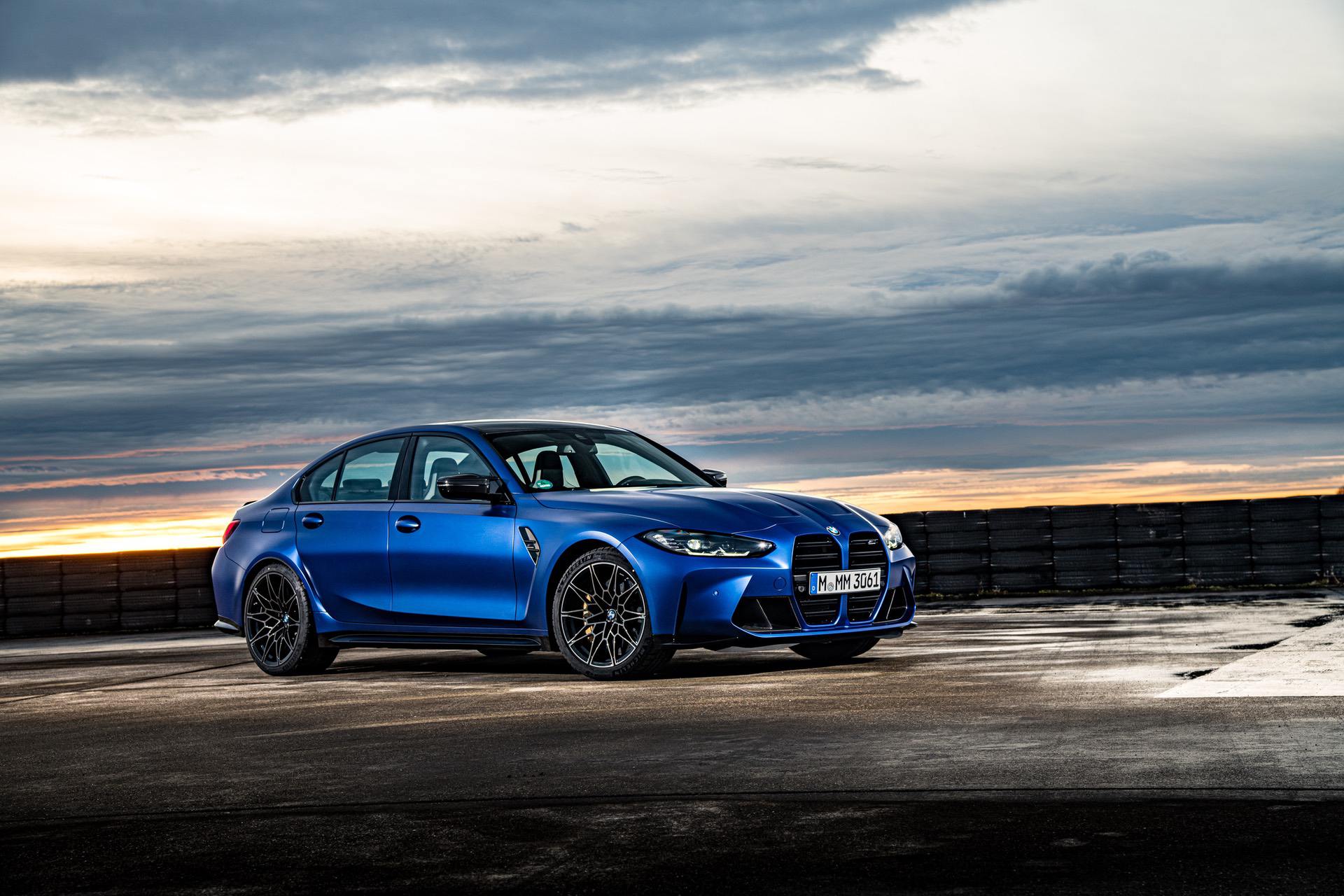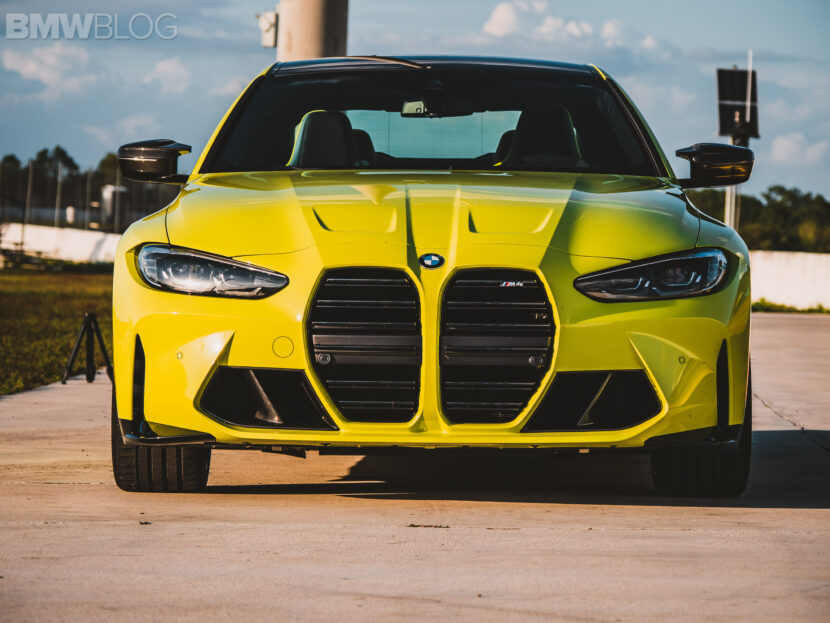Mira, otro artículo de hoy

, este de una web del motor de UK:
BMW defiende esa enorme parrilla nuevamente porque a BMW no le importa lo que pienses
8 de febrero de 2021
El enfoque de BMW a las críticas continuas del diseño de la Serie 4 es la suma de todas las contradicciones o el intento más equivocado de salvar las apariencias en la última hora.
Durante bastante tiempo, BMW ha estado en el centro de la tormenta, de la peor clase: una tormenta de medios en línea. Claramente ama la
enorme rejilla de
dientes torcidos de la Serie 4, y está dispuesta a defenderla incluso si eso significa insultar y alienar a su propia base de clientes y seguidores de toda la vida. Una forma de hacerlo es diciendo que no le importa lo que la gente dice en línea, porque ¿por qué debería prestarle atención a los que odian y a los detractores aficionados?
Para un fabricante de automóviles al que no le importan las críticas, válidas o no, BMW pasa una cantidad excesiva de tiempo defendiéndose a sí mismo y a sus elecciones. Protesta demasiado, como solía decir Shakespeare.
La semana pasada, Domagoj Dukec, diseñador jefe de BMW, habló con
Top Gearsobre la parrilla gigante y cómo, curiosamente, BMW
no estaba
en el negocio de complacer a la gente . Esa afirmación puede parecer extraña para un fabricante de automóviles que, por definición, se basa en los deseos de las personas y necesita ser satisfecho con un producto para sobrevivir, pero hubo un giro. Según Dukec, incluso si el 80 por ciento de las personas dijo que la rejilla gigante apestaba, al 20 por ciento le gustó. Y fue este 20 por ciento el que se ajusta al
"tipo de clientes a los que nos dirigimos".
Dukec también se sentó a charlar con la edición de este mes de
Esquire.revista, y esta vez, está probando un enfoque diferente: solo los subvertidores tienen la oportunidad de cambiar las cosas, dice. El hecho de que un diseñador de automóviles hable con una publicación para hombres es, en sí mismo, revelador. Esquire está más orientado a la cultura pop que una revista automotriz, por lo que es casi como si BMW estuviera tratando de explicarse a las mismas personas que elige ignorar. Sin dejar de decir que no le importan sus críticas (probablemente válidas).
Las comparaciones también son más de cultura pop. A Karl Lagerfeld nunca le importaron ni un ápice sus detractores, y mira lo que hizo con Chanel. Lo mismo ocurre con Marc Jacobs, en sus días de Louis Vuitton. Solo los subvertidores tienen la oportunidad de tener éxito en sus respectivas industrias, siempre que puedan combinar la herencia de una marca con sus propias visiones innovadoras.
Ahí es donde Dukec se ve a sí mismo. De hecho, admite que Lagerfeld es un ídolo personal suyo.
El diseño es todo relativo, explica. Muy parecido al concepto de "belleza". ¿Puedes descartar a una mujer por no ser hermosa solo porque su nariz no es típicamente hermosa? Sophia Loren, a quien una vez le dijeron que podía despedirse de una carrera como actriz si no se operaba la nariz, no estaría de acuerdo.
No juzgues un libro por su portada y un BMW por su
enorme parrilla es la conclusión de esta breve charla.
“Me hace preguntarme, en cierto modo, cómo la gente es tan superficial que juzga por un detalle”, explica Dukec.
“No le dirías a un chef: 'Está bien, este menú de tres platos es excelente, pero ¿cuál es tu ingrediente favorito?' La sal es solo sal; un tomate es solo un tomate. Lo que realmente importa es la composición de todos los ingredientes ".
“El buen diseño no se trata de bonito o feo. Estas cosas son subjetivas. ¿Qué es bonito? Nunca diseñarás nada que guste al 100% de la gente. No es posible, porque la gente tiene gustos y necesidades tan diferentes. Por lo tanto, no se trata de gusto, sino de evaluar lo que un cliente realmente desea, o lo que podría desear en el futuro ” , agrega.
Casi se podría argumentar que Dukec dice que la gente aprenderá a amar la parrilla gigante porque BMW la creó. Este es un enfoque común en marketing: crea una necesidad falsa y la aborda con un producto existente. Pero la conclusión con BMW es, como el mismo Dukec señaló, la abrumadora mayoría de la "gente" lo odia. El ochenta por ciento de la "gente" significa que a muy pocos les gusta, y demasiados no pueden imaginar un futuro en el que puedan llegar a gustarles.
Agregue a esto la
controversia de OK Boomer y otros
movimientos equivocados del equipo de marketing, y obtendrá las campañas de marketing más confusas y extrañamente entretenidas de los últimos tiempos. El tío Karl estaría orgulloso.
---------------------
BMW Defends That Huge Grille Again Because BMW Doesn’t Care What You Think
8 Feb 2021
Home >
News >
Editorial
BMW’s approach to ongoing criticism of the 4-Series design is either the sum of all contradictions or the most misguided attempt at saving face in the last hour.

For quite some time, BMW has been at the center of the storm – of the worst kind: an online media storm. It clearly loves the
huge, bucktoothed grille of the 4-Series, and it’s willing to defend it even if that means insulting and alienating its own customer base and longtime supporters. One way of doing that is by saying it doesn’t care about what people are saying online, because why should it lend an ear to haters and hobbyist detractors.
For a carmaker that doesn’t care about criticism, valid or not, BMW sure does spend an inordinate amount of time defending itself and its choices. Thou doth protest too much, as Shakespeare used to say.
Just last week, Domagoj Dukec, Head Designer at BMW, spoke to
Top Gear about the giant grille and how, strangely enough, BMW was
not in the business of pleasing people. That statement might seem strange for a carmaker which, by definition, relies on people’s desires and needs to be met with a product in order to survive, but there was a twist. According to Dukec, even if 80 percent of people said the giant grille sucked, 20 percent liked it. And it was these 20 percent that fit
“the type of customers we are targeting.”
Dukec also sat down for a chat with this month’s issue of
Esquire magazine, and this time, he’s trying a different approach: only subverters ever have a chance at shaking things up, he says. The fact that a car designer would speak to a men’s publication is, in itself, telling. Esquire is more pop culture-oriented than an automotive magazine, so it’s almost like BMW is trying to explain itself to the very people it’s choosing to ignore. While still saying that it doesn’t care for their (probably valid) criticism.
The comparisons are more pop culture, too. Karl Lagerfeld never cared an iota about his detractors, and look what he did with Chanel. The same goes for Marc Jacobs, back in his Louis Vuitton days. Only subverters have a chance at succeeding in their respective industries, as long as they’re able to combine a brand’s heritage with their own groundbreaking visions.
That is where Dukec sees himself. In fact, he admits Lagerfeld is somewhat of a personal idol of his.
Design is all relative, he explains. Much like the concept of “beautiful.” Can you dismiss a woman as not beautiful just because her nose isn’t typically beautiful? Sophia Loren, who was once told she could kiss an acting career goodbye if she didn’t get a nose job, would beg to differ.
Don’t judge a book by its cover and a BMW by its
massive grille is the takeaway from this brief chat.
“It makes me wonder, in a way, how people are so superficial that they judge on one detail,” Dukec explains.
“You wouldn’t say to a chef, ‘Okay, this three-course menu is great, but what is your favorite ingredient?’ Salt is just salt; a tomato is just a tomato. It’s really the composition of all the ingredients that is important.”
“Good design is not about pretty or ugly. These things are subjective. What is pretty? You will never design anything that 100% of people will like. It’s not possible, because people have such different tastes and needs. So it’s not about taste, but about gauging what a customer actually desires, or what they could desire in the future,” he adds.
One could almost make the argument that Dukec is saying people will learn to love the giant grille because BMW created it. This is a common approach in marketing: you create a false need and address it with an existing product. But the bottom line with BMW is, as Dukec himself pointed out, the overwhelming majority of “people” hate it. Eighty percent of “people” means very few actually like it, and too many can’t ever imagine a future in which they might grow to like it.
Add to this the
OK Boomer controversy and other
misguided moves from the marketing team, and you get the most confusing – and strangely entertaining – marketing campaigns of recent times. Uncle Karl would be proud.














